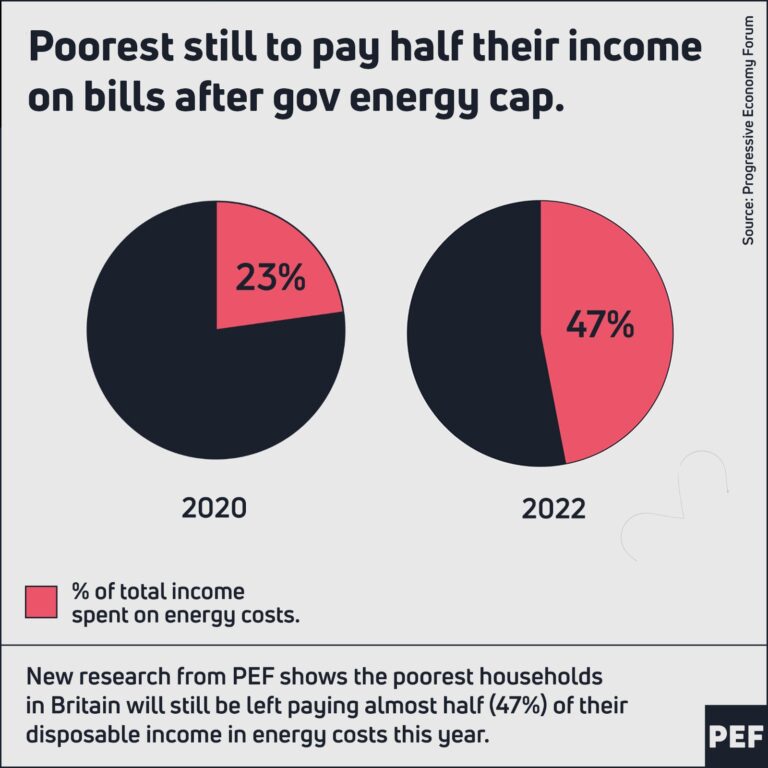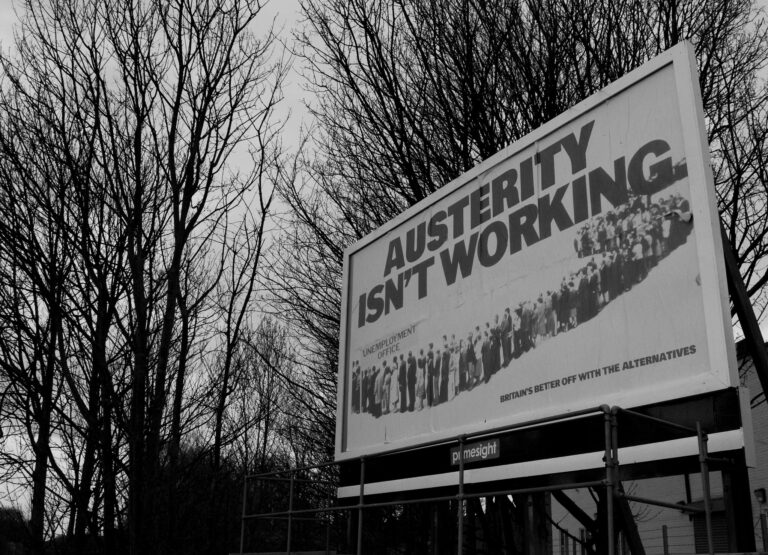In June this year, the University of Warwick’s Thiemo Fetzer released fascinating research on the links between austerity and Brexit. Specifically, exposure to austerity-induced spending cuts is linked to an increase in UKIP vote shares, both at the individual and district level. Since UKIP vote shares and an area’s support for Leave are highly correlated, the implication is that without austerity, 2016’s referendum might well have panned out in favour of Remain.
Fetzer notes the scale of the cuts since 2010 in his work. In real, per capita terms, spending on welfare and social protection has fallen by 16%, education spending by 19%, and healthcare spending has flatlined – essentially cut, given the ageing population and the fact that the health service has had to pick up some of the slack left by cuts to local government and social care.

In this sense, it’s clear how austerity laid the groundwork for the Brexiters’ core strategy. The Leave campaign played on anxieties around public services with talk of Brexit freeing up an extra £350m a week for the NHS, while supporting media spat out overwhelmingly negative coverage of immigration.
In their analysis of thousands of newspaper articles from during the EU Referendum campaign, researchers from King’s College London found: “Migrants were blamed for many of Britain’s economic and social problems – most notably for putting unsustainable pressure on public services.” Little coverage was given to migrants’ tax and labour contributions to public services. This, against a backdrop of anti-migrant billboards reminiscent of Nazi propaganda.
PEF Council member Simon Wren-Lewis has written on public attitudes to immigration in light of this media coverage. He notes that in a 2016 poll, people “on balance think EU immigration is good for the economy and for British culture, and even for themselves personally”. The issue is that they overwhelmingly thought immigration was bad for the NHS.

But, as Wren-Lewis writes:
“…we know, with almost certainty, that the opposite is true: immigration creates net additional resources for public services. This is not complicated: they pay more in taxes than they take out because they tend to be of working age. But the myth that politicians and the media promulgate is that immigrants are somehow the reason access to public services has become more difficult, and they do this in large part to cover up the impact of austerity.”
Worryingly, the driving force behind the new guard of Conservative Brexiters – Liz Truss, Dominic Raab, Kwasi Kwarteng – is a vision of ‘Britannia Unchained’: a hyper-free-market version of the UK with even deeper cuts to public services in the name of neoliberalism. As Professor Tim Bale writes, the disjunction between this vision and the way Brexit has been sold is so jarring as to be Leninist. In light of such duplicity, Fetzer’s work is a vital step in untangling the confluence of factors that led to the decision to leave the EU.
Respecting the electorate
The title of Fetzer’s paper – Did Austerity Cause Brexit? – might cause discomfort for those who feel it is patronising to link the Leave vote to anything other than voters’ informed exercise of free will.
But engagement with the deeper reasons for Brexit is a necessary demonstration of respect for the electorate – and democracy more generally – absent from much of the pro-Brexit lobby. The attempt to undermine these efforts on grounds of being ‘patronising’ is a classic neoliberal tactic, with origins in (neoclassical) economics.
Economics and individual choice
For the most part, economists see their task as not to dictate or criticise people’s preferences, as revealed by their choices. Instead, they mainly take preferences as given, and focus on the most efficient way to satisfy them. This strain of thought has an understandable, democratic appeal. We don’t want our economists to moralise!
The problem is that economics is fundamentally a ‘moral science’ – it’s about who gets what. In reality, focussing on ‘efficiency’ above other goals is not a morally neutral commitment. Another issue is that our preferences are not formed in a vacuum; they are shaped by institutions, policies, politics. If economists are forced to take preferences as given, it leaves them unable to criticise structural forces.
Economists’ focus on GDP growth, for example, might be justified by the majority of people’s desire to be richer. But this desire is not wholly innate – it is partially caused by our economic system (capitalism), the focus of government policy, and so on. If economics as a discipline is to be able to engage with these issues, it cannot rely on preferences as its sole normative input.
Neoliberalism and Brexit
Neoliberals go a step further. Markets are posited as the only institutions which can effectively aggregate people’s preferences, and thus the only morally just way to decide economic outcomes. Save for a few select cases of ‘market failure’, government intervention (be it direct or through e.g. regulation) is seen to infringe on the sanctity of individual preferences. (See Philip Mirowski’s Never Let a Serious Crisis go to Waste.)
Compare this to the portrayal of judges as ‘enemies of the people’ in the aftermath of the vote to leave the EU, and it becomes clear that Brexiters are trying to apply the same logic to referenda.
This leaves the Right an open door to manipulate people’s ‘preferences’ through, say, lying about the existence of a ‘Brexit dividend’ or conducting smear campaigns against immigrants. They can then feign an innocent commitment to enacting the ‘will of the people’, as if mass misinformation were any less a subversion of democracy.
Given this and what else we know about the Leave campaign (not least their ties to organisations engaging in voter manipulation), looking for structural forces behind the referendum result need not be patronising. Rather, it is necessary if we are to understand both our own political economy and the biggest setback to the European integration project since its inception.
Photo credit: Flickr / Giles Turnbull








